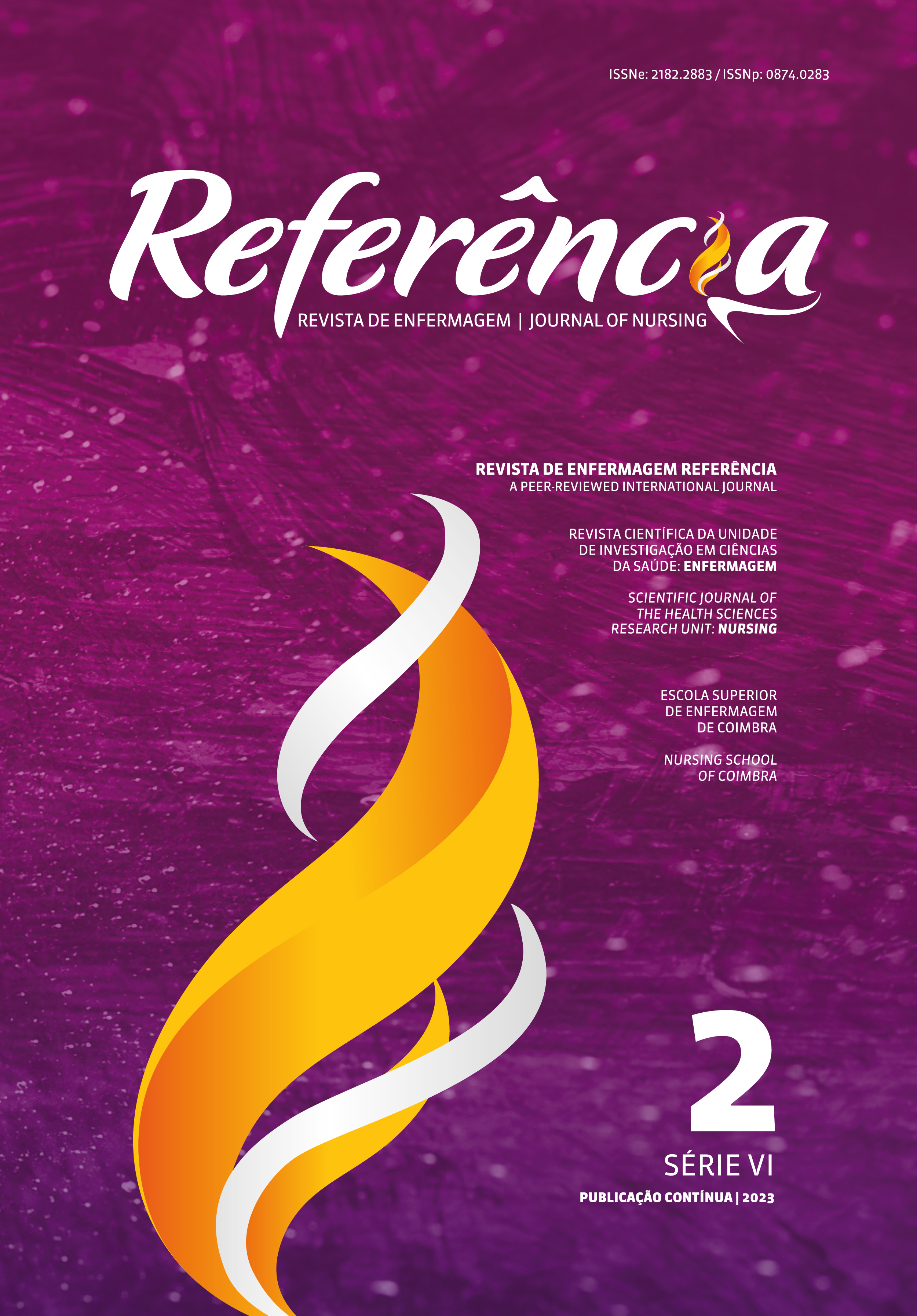The care process between informal caregivers and patients with palliative care needs at home: Meta-synthesis
DOI:
https://doi.org/10.12707/RVI22074Keywords:
palliative care, patient, caregivers, home, systematic reviewAbstract
Introduction: Informal caregivers and patients with palliative care needs are essential for a successful home-based care experience. However, little is known about the care process between informal caregivers and these patients.
Objective: To identify the factors that influence the care process between informal caregivers and patients with palliative care needs at home.
Methodology: Meta-synthesis following the Joanna Briggs Institute methodology. We included qualitative studies with informal caregivers and/or patients with palliative care needs at home. We searched MEDLINE, CINHAL, Embase, and Scopus databases (2009-2021).
Results: Thirty studies were included, with 605 participants. Eight main themes emerged: facilitating factors of informal care; complicating factors of informal care; strategies used; the influence of time in care; the influence of disease progression in care; motivations to provide home-based care; continuous learning; and caregiver’s roles.
Conclusion: Informal care is a dynamic process where facilitating/complicating factors, strategies, and disease progression are interconnected. The results contribute to understanding the care process and designing person-centered, flexible, and context-sensitive care plans.
Downloads
References
Aromataris, E., & Munn, Z. (Eds.). (2020b). Joanna Briggs Institute reviewer’s manual (4th ed.). The Joanna Briggs Institute.
Bruinsma, J., Peetoom, K., Bakker, C., Boots, L., Verhey, F., & Vugt, M. (2022). They simply do not understand: A focus group study exploring the lived experiences of family caregivers of people with frontotemporal dementia. Aging and Mental Health, 26(2), 277–285. https://doi.org/10.1080/13607863.2020.1857697
Connor, S. R. (2020). The global atlas of palliative care at the end of life (2nd ed.). Worldwide Palliative Care Alliance; World Health organization. http://www.thewhpca.org/resources/global-atlason-end-of-life-care
Critical Appraisal Skills Programme. (2018). Checklist: 10 questions to help you make sense of a qualitative research. http://cfkr.dk/images/file/CASP%20instrumentet.pdf
Figueiredo, D. (2007). Cuidados familiares ao idoso dependente. Climepsi.
Gardiner, C., Brereton, L., Frey, R., & Wilkinson-meyers, L. (2015). Approaches to capturing the financial cost of family care-giving within a palliative care context : A systematic review. Heal and Social Care in the Community, 24(5), 519-531. https://doi.org/10.1111/hsc.12253
Gomes, B., Calanzani, N., Gysels, M., Hall, S., & Higginson, I. J. (2013). Heterogeneity and changes in preferences for dying at home: A systematic review. BMC Palliative Care, 12(7), 1–13. http://www.biomedcentral.com/1472-684X/12/7
Gómez-Batiste, X., & Connor, S. (2017). Building integrated palliative care programs and services. Liberdúplex.
Hudson, P., & Payne, S. (2011). Family caregivers and palliative care: Current status and agenda for the future. Journal of Palliative Medicine, 14(7), 864–869. https://doi.org/10.1089/jpm.2010.0413
Lei no52/2012 da Assembleia da Republica. (2012). Diário da República: I série, nº 172. https://files.dre.pt/1s/2012/09/17200/0511905124.pdf
Martín, J. M., Olano-Lizarrga, M., Saracíbar-Razquin, M., Olano-Lizarraga, M., & Saracíbar-Razquin, M. (2016). The experience of family caregivers caring for a terminal patient at home: A research review. International Journal of Nursing Studies, 64, 1–12. https://doi.org/10.1016/j.ijnurstu.2016.09.010
Page, M. J., McKenzie, J. E., Bossuyt, P. M., Boutron, I., Hoffmann T. C., Mulrow, C. D., Shamseer, L., Tetzlaff, J. M., Akl, E. A., Brennan, S. E., Chou, R., Glanville, J., Grimshaw, J. M., Hróbjartsson, A., Lalu, M. M., Li, T., Loder, E. W., Mayo-Wilson, E., McDonald, S., … Moher, D. (2021). The PRISMA 2020 statement: An updated guideline for reporting systematic reviews. BMJ, 372(71), 1–9. https://doi.org/10.1136/bmj.n71
Robinson, C. A., Bottorff, J. L., McFee, E., Bissell, L. J., & Fyles, G. (2017). Caring at home until death: Enabled determination. Supportive Care in Cancer, 25(4), 1229–1236. https://doi.org/10.1007/s00520-016-3515-5
Sarmento, V. P., Gysels, M., Higginson, I. J., & Gomes, B. (2017). Home palliative care works: But how? A meta-ethnography of the experiences of patients and family caregivers. BMJ Supportive and Palliative Care, 7(4), 390-403. https://doi.org/10.1136/bmjspcare-2016-001141
Short, C. (2017). Experiences of informal caregivers in managing the care and the death in the rural palliative care home setting. https://www.heti.nsw.gov.au/__data/assets/pdf_file/0006/438801/Caroline-Short-Final-Report.pdf
Tong, A., Sainsbury, P., & Craig, J. (2007). Consolidated criteria for reporting qualitative research (COREQ): A 32-item checklist for interviews and focus groups. International Journal for Quality in Health Care, 19(6), 349–357. https://doi.org/10.1093/intqhc/mzm042
Wu, M., Huang, S., & Tsao, L.-I. (2020). The life experiences among primary family caregivers of home-based palliative care. American Journal of Hospice & Palliative Medicine, 37(10), 816–822. https://doi.org/10.1177/1049909120907601
Zarzycki, M., Morrison, V., Bei, E., & Seddon, D. (2022). Why do they care? A qualitative systematic review and meta-synthesis of personal and relational motivations for providing informal care. Health Psychology Review, 1–33. https://doi.org/10.1080/17437199.2022.2058581

















